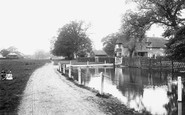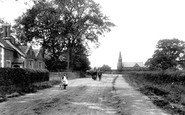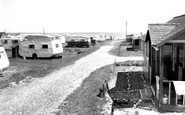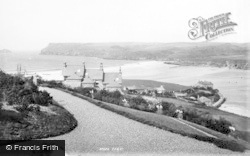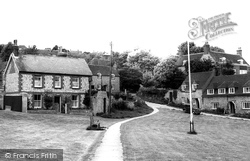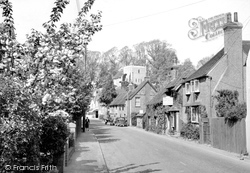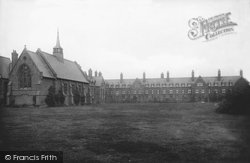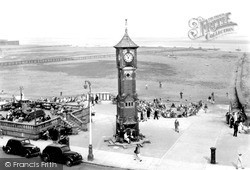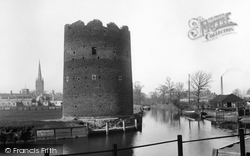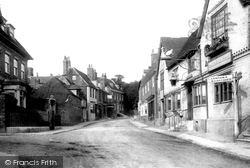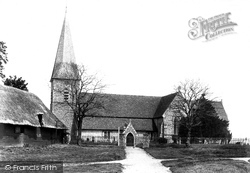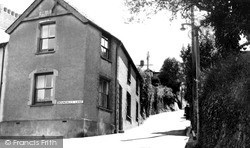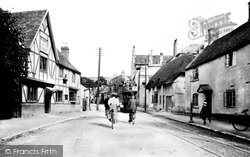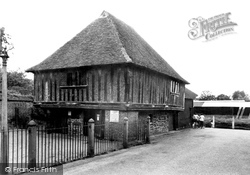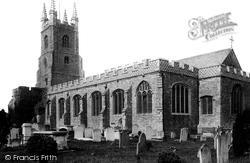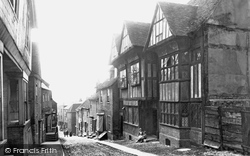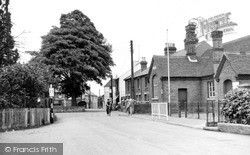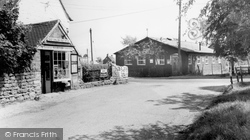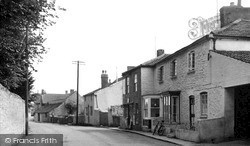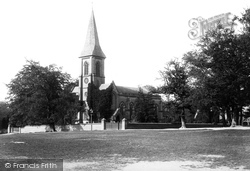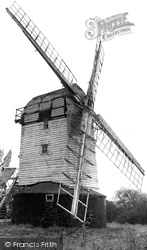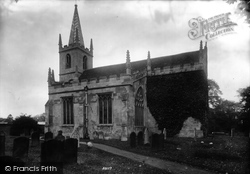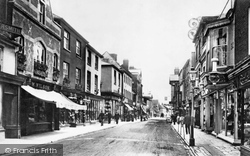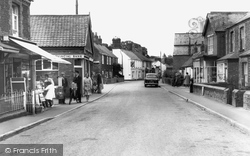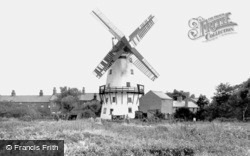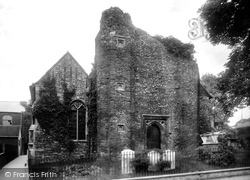Places
2 places found.
Those places high-lighted have photos. All locations may have maps, books and memories.
Photos
5 photos found. Showing results 161 to 5.
Maps
29 maps found.
Books
Sorry, no books were found that related to your search.
Memories
668 memories found. Showing results 81 to 90.
Glades End, Surf Crescent
Eastchurch cliffs My parents bought a plot of land on the Eastchurch cliffs in the 1940s and my father designed and had built our bungalow called Glades End in Surf Crescent. At this time, there were very few buildings ...Read more
A memory of Eastchurch in 1953 by
1950 61 A Child's Memory Of Kirkconnel
On 11th October 1950 I was born in the flat above Drife's butchers shop in Kirkconnel. My dad, Tommy, worked in the shop with Cameron Purvis and struggled to feed a family of three on the butcher's wage and ...Read more
A memory of Kelloholm by
Lemington Upon Tyne, Scouting
Scouting Life during the Forties I was born in January 1936 in a large village, Lemington in Northumberland, England. Lemington bordered on the limit of the city of Newcastle upon Tyne. It was a working class ...Read more
A memory of Lemington in 1944 by
Barking... So Very Different Now
We moved to Hertford Road in 1971, I was 3 years old. I remember playing in our overgrown garden which backed on to the Burges road playing fields soon after we moved in. There used to be a horrendous smell from the ...Read more
A memory of Barking by
Cluggies Pond
I obviously don't remember the common in 1911, but I did live in Old Common Road number 15 from about 1943 until 1955. Where the children are sitting was The Common, and a herd of Fresion cows were often grazed there. Old Common Road ran ...Read more
A memory of Cobham by
Brief Memories Of My First School: Noak Hill
It was 1947, when my parents were told they would be able to move from their one room in a house to a Prefab in Harold Hill. My mother was pregnant. You didn't start school until you were 5. The closest ...Read more
A memory of Noak Hill by
Dunstaffnage War Years
Like your other contributors I also spent my very early years in Dunstaffnage. Dad had spent the early part of the war from day one as a young Engineer Officer on North Atlantic convoys in the Merchant Navy. When you were lucky to ...Read more
A memory of Oban by
1950s Rosenau Rd.
Hi, I was born in 1946 at the South London Hospital for Women and lived for a while at 15 Etruria St. Battersea, it was near Dogs Home Bridge and Battersea Power Station, where my dad, Charlie Jones worked. Soon we ...Read more
A memory of Battersea by
Mitcham County Grammar School For Boys
Mitcham County Grammar School for Boys Remembered Memory is a selective thing, the best is easy, but the mind glosses over the worst. Some things recollected as certainties turn out to be not quite so. These are ...Read more
A memory of Mitcham by
Beachbank Caravan Site, Ulrome, East Yorkshire.
My Grandparents Sydney and Ellen Simpson built Beachbank between the world wars. Sydney had served in the Royal Flying Corps in WW1 and left seriously injured but that never prevented them from buying this ...Read more
A memory of Ulrome by
Captions
388 captions found. Showing results 193 to 216.
Hayle Bay, with its lines of evenly-breaking surf and golden sand, is now a mecca for surfers and tourists, and New Polzeath has grown along the low cliffs on the opposite side of the beach.
A view taken from the war memorial pictured in No 71402, showing the subtle changes wrought in some thirty five years - a flint-built house with brick decoration now stands on the left, creeper
Some are built of brick or flint, and some are creeper-clad. The village was once an important port on the River Adur.
But while these red-brick buildings offered women higher education, it was only fifty years later that women became entitled to receive degrees.
The marked two colours of brick are not so easy to distinguish fifty years on from our earlier photographs. The ornate clock tower was a gift to the town in 1905 from Alderman J R Birkett.
It is the oldest surviving brick building in Norwich, and is reputedly haunted by Old Blunderhazard, a ghostly rider who gallops past on Christmas Eve.
These two views of the steep high street as it winds up the hill towards Canterbury show some of the rich assortment of buildings built of brick or black-and-white half timbering.
Behind the barn is the red-brick rectory where the great 17th- century scholar Meric Casaubon lived and died. He is buried in Canterbury Cathedral.
Just up from the pub are the elegant red brick offices of Peter, Peter and Sons, Solicitors, built in 1911 by Claude Hurst Peter.
But while these red-brick buildings offered women higher education, it was only fifty years later that women became entitled to receive degrees.
The record-breaking champion jockey Fred Archer, who was born in Cheltenham in 1857, grew up in the 16th-century half-timbered King's Arms Inn where his father was landlord.
Now a National Trust property and open as a museum, this stone, brick and timber building is said to be the smallest town hall in Britain.
It dates from Norman times, but parts of an older arch, containing some Roman bricks, may be seen in the nave. The large west tower was built in the late 15th century. Southend
Its historic buildings, ranging from medieval half-timber to Georgian brick, are well-preserved today.
Although actually very old, this is another Medway-side village that was left with a distinctly Victorian appearance by the 19th century building boom, when it was a source of brick earth and also chalk
During the 1980s the green wooden Village Hall, opposite, was replaced by a modern brick building.
Puriton's brick and tile industry has now gone, but Middle Street is much the same today. Biggs' general store (right), now the post office, sits here above Good's Farm.
Consecrated in August 1830, St Peterís church is built in brick and stone; it consists of chancel, nave, north and south porches, and an eastern tower with a spire containing a clock and six bells
The tarred brick roundhouse and fantail are Victorian; the roundhouse has two storeys, one of which is below ground level. The machinery and stones were removed c1900.
Immediately north-east of the Hall is St Peter's Church, almost entirely rebuilt in the 1770s by Thomas Lumby in partly scholarly Gothic, although a cheery Strawberry Hill Gothick breaks out here
To the left, Wilson's façade is a fine example of Victorian decorative brick work.
The railway from Heacham to Wells was a lifeline for the export of local grain, vegetables, bricks and shellfish for metropolitan markets.
Marsh Windmill is a large Fylde-type brick tower mill with four patent shuttered sails and a fantail. Dated 1794, it worked until 1922.
The late 17th-century tower with its liberal use of salvaged Roman brick fell in the 17th century.
Places (2)
Photos (5)
Memories (668)
Books (0)
Maps (29)

